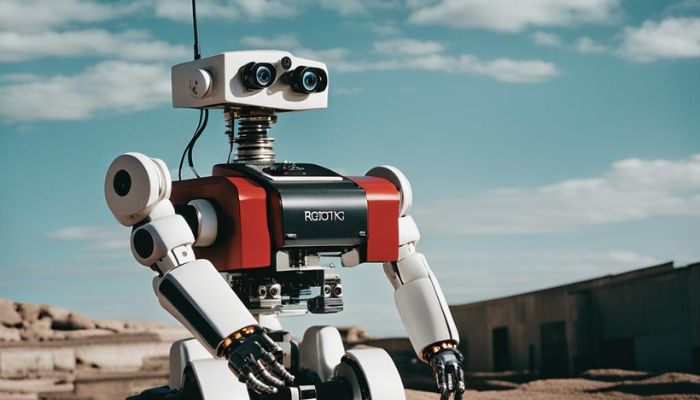Is Robotics an Emerging Technology in Today’s World? Techno Timing
The question is robotics an emerging technology. The 21st century is a world where humans are working with the support of technology like gadgets, machines, etc. Humans are inventing technologies to ease their work and technologies are supporting them by easing their tasks. One of the technologies that is coming in more handy to humans is Robotics. With the help of modern technologies like AI, advanced materials, and machine learning, robotics is helping the world’s economy to grow and changing the faces of industries. In today’s article, we will discuss robotics and how they work together with humans towards a better future.
Robotics
In simple words, A robot is a machine that supports humans in finishing difficult tasks and robotics is science, engineering, and technology to create these machines.
Evolution of Robotics
We all have watched movies like Terminator, and Robot (Chitti the robot) in our childhood, and imagined being like them. The existence theories of robots have been here for a very long time but, the millennials turned the theories into practicality by creating robots for industrial purposes, and Generation-Z (Gen-Z) in the modern century is creating high-tech robots for complex tasks. Robotics is becoming known to individuals as we rely on robots for almost everything.
Applications of Robotics
The use of robotics is increasing at the speed of light, we all are using robots daily. Farmers are using machines for cultivating, Doctors are using them for surgery, Writers are using them to write effective content, Manufacturing companies are using them for making a product, and archaeologists are using them to find hidden gems. In other words, Robots are available to serve humans in almost every task.
Robotics in Industries
Robotics saves most humans time and energy by completing their work in one go. Let’s understand this deeply. For example, A manufacturing company is producing some goods which means, the company will require 20-30 individuals to make certain items and need to work for 8-9 hours daily to achieve their target, which seems time-consuming to me. Machines are doing the same task in less time and producing the same product in more quantity and better quality, saving the energy of 20-30 individuals in an industry. The industry can utilize the time of these individuals in another task, helping them to grow with a better vision. Once, Humans used to do the same task with a great risk of injuries, but robotics in industries has reduced the risk rate and the chances of mistakes. With the help of robotics, manufacturing companies are producing products faster and at a lower cost which helps humans focus on other tasks.
Future Trends in Robotics/ Future of Robotics/ Future with Robotics
The future with robots all around us just like in a movie seems exciting but in reality, it’s a bit challenging after all, Robots are machines programmed by humans to help human society. After AI, robots do know how to tackle a situation but to be a replica and just be like a human is still a future. Once it’s done, There will be a time when robots will be working with humans to increase productivity and save time with minimum risks and errors.
Challenges Facing Robotics
Robotics is opening up opportunities to humans but there are many obstacles to overcome or to worry about. Humans are leaning toward the upgradation of robotics but there is a possibility that robots will take over humans in certain areas and jobs. Apart from replacing humans, there are some moral issues too.
Ethical Considerations in Robotics
If you think that developing a robot is easy, then it is not, we need to understand that creating a robot depends on ethics, as ethics plays an important role in using robots with humans. As I said above, Robots are machines programmed by humans to help Us. But, once we achieve what we’re aiming for, future robots may be able to make decisions, think, and understand solely which is dangerous for human society as it will hamper our privacy and safety.
Conclusion/ Summary
Robotics as a future guarantees a better future for human society. As time passes robotics is taking over many risky tasks, allowing humans to think beyond, increasing the productivity of industries, and easing human lives. There are two sides to coins and the rapid expansion of robotics gives us multiple benefits. For a better future humans need to solve all the problems to secure human society so robots can become compatible with humans.
Frequently Asked Questions (FAQs)
What are the main applications of robotics?
Humans are working with robots every day. Farmers use robots for cultivating, Doctors use robots to perform surgeries, Industries use robots to produce items, Archeologists use them to find history, and more. From calculation to Registering humans are dependent on robotics.
How do robots benefit society?
Robots are helping humans in many ways like taking care of risks or work that is difficult for humans to complete. Industries are using robots to complete time-consuming tasks in less time and less effort resulting in greater productivity. Robots are performing tasks that are difficult or have some risks. Robots are saving human efforts and ensuring the safety of humans.
What role will robots play in the future of work?
We know that once robots understand human thinking, they will replace humans in many fields but that doesn’t mean there won’t be any more opportunities for humans. Creating robots, designing them, and looking after them are the jobs that an individual can do. Remember, only when we make one, does it work. The future of robotics has many hopes and one of them is working together and simultaneously.
What are the future prospects of robotics?
With the growth of technology, the opportunities in robotics are never-ending. With technologies like AI, Sensors, and New materials, robotics is settling down in the human race and supporting humans in various ways. Humans are creative and so robotics is becoming more reliable for humans. In the canopy of humans, robotics is transforming society and growing the markets, challenging humans to be more efficient.
How are robots programmed?
C++ and Python are some of the computer’s special languages from which robots work.
Programmers use these languages for coding that regulate the behavior of robots.
Also Read: Checking the Security of Cryptocurrency Transactions with Blockchain Technology


